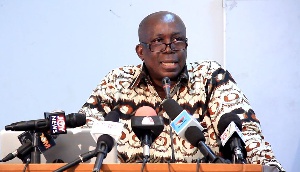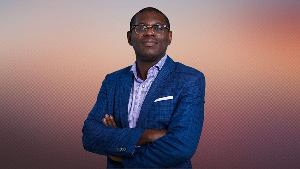Alex Kaakyire Frempong, a Senior Lecturer at the Department of Political Science, University of Ghana, has stated that proposals to abolish the Council of State are beneficial but must align with constitutional requirements.
He noted that the Council of State's establishment under Chapter 9 of the 1992 Constitution is an entrenched provision, potentially necessitating a referendum for any amendment.
In an interview with the Ghana News Agency, Frempong, who also serves as the Executive Director of the Elections Research and Resource Centre, supported the idea of creating a second chamber of Parliament to take over the functions of the Council of State.
However, he recognized that abolishing the Council of State "will not be a simple matter."
The political scientist was commenting on a proposal by Alan Kyerematen, the Founder and Leader of the Movement for Change, who suggested the abolition of the Council of State if he were elected president.
During the unveiling of the Movement's manifesto, titled "The Great Transformational Plan," on Monday, June 24, 2024, Kyerematen announced his intention to replace the Council of State with a new Second Chamber of Parliament, which would include representatives from key stakeholder groups such as labor unions.
Recently, the relevance of the Council of State has come under scrutiny, with some political commentators, academics, and civil society organizations arguing that the body has outlived its usefulness and should be dissolved.
Frempong criticized the Council of State for not meeting expectations over the years, pointing out issues with its current composition.
"The mode of appointment for the Council of State, where the majority are presidential nominees and those meant to provide regional balance are also selected along party lines, results in them invariably becoming the errand boys and girls of the President," he explained.
He suggested that a second chamber, distinct from the first, could help mitigate the overly partisan atmosphere in the lower house.
Frempong envisioned the proposed Second Chamber as a nonpartisan body, providing opportunities for professional groups, traditional leaders, and distinguished individuals to engage in the governance process.
"The composition should differ from a mere second chamber contested along party lines.
"It should include representatives from various associations, chiefs, and individuals who have excelled in other fields and wish to contribute to the country's politics without partisan bias," he emphasized.
Crime & Punishment of Wednesday, 26 June 2024
Source: GNA













